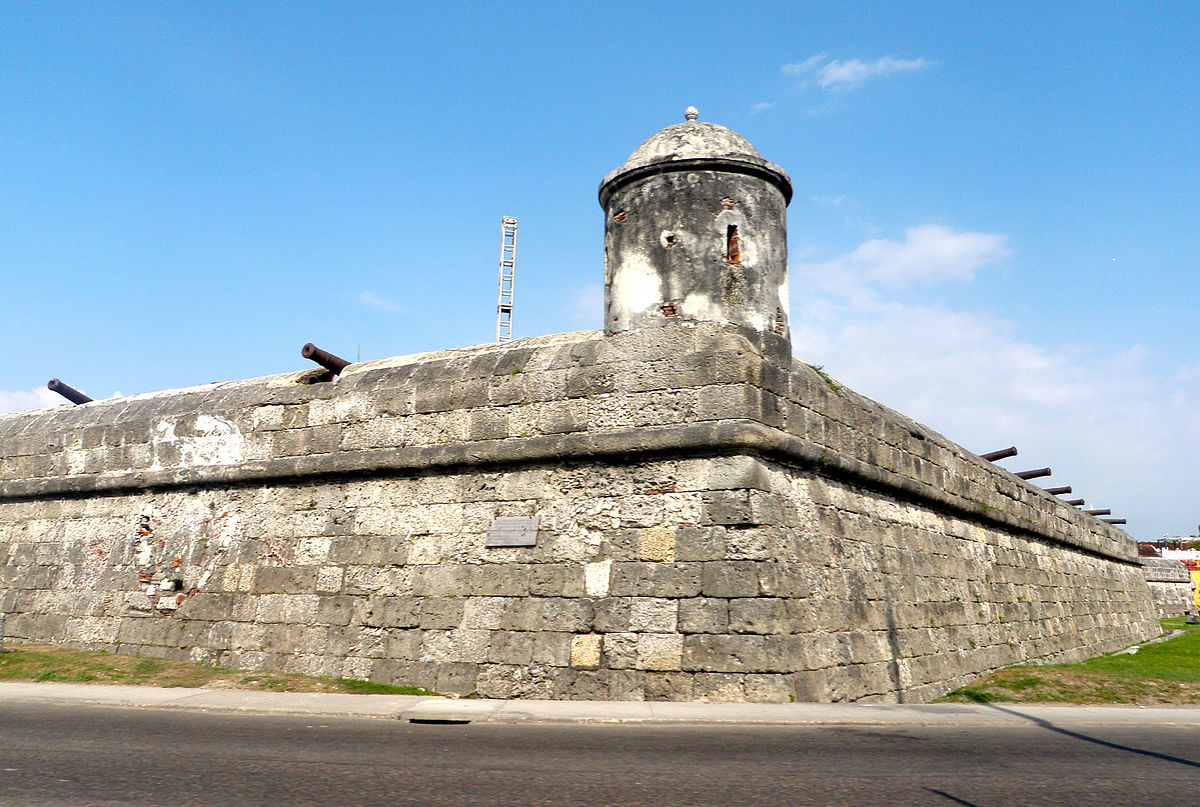
Catedral de Santa Catalina de Alejandría
Free app for self-guided walking tours. Tap locations on the map to load real historical stories in the app.







This area covers Cartagena’s historic center, focusing on imperial defense, port commerce, church institutions, and later civic modernization.
In the 16th and early 17th centuries, the port organized transatlantic trade and forced labor while religious orders and the cathedral seat consolidated authority around main squares. By the 17th and 18th centuries, sustained maritime threats led to a continuous defensive program around the bay, illustrated by the Baluarte de Santo Domingo along the seafront. In the 19th century after independence, municipal rule and commercial shipping reshaped plazas, market space, and access routes between the walled city and Getsemaní, with the Puerta del Reloj functioning as the civic threshold. By the 20th century and later decades, preservation policies and cultural institutions—from naval and history museums to literary memorials—reused former military and clerical buildings and integrated the waterfront into public life.

On July 24, 1821 at Bahía de Cartagena, Admiral José Prudencio Padilla’s patriot fleet defeated the Spanish squadron, clearing the way for the siege that ended with the royalist surrender in October 1821.

At the Baluarte de San Ignacio in the early 1600s, a dispute between the garrison and the adjacent Jesuit college led the Crown to shift a new curtain wall forward and relocate the bastion beside the Jesuit church. The redesign created a defensive passage and was later reinforced in 1730 under engineer Juan de Herrera y Sotomayor.

After Baron de Pointis’s 1697 attack damaged the old Boca del Puente, authorities rebuilt the gate as the Puerta del Reloj with a new façade in 1704 and installed the city’s first public clock. The tower’s timekeeping became a civic utility, with later mechanisms replaced by a Swiss clock in 1937 amid reports of vandalism in local lore.

At Fuerte de San Sebastián del Pastelillo on Manga, Viceroy Sebastián de Eslava ordered a new fort built between 1742 and 1744 on the ruins left by Edward Vernon’s 1741 demolition of the earlier Boquerón redoubt. The rebuilt work by engineers Juan Bautista Mac‑Evan and Carlos Desnaux later shifted to civilian uses, including a cattle dock in the early 1900s.

Catedral de Santa Catalina de Alejandría
Click on any location below to find it on the map and discover more about the neighborhood.
Storydex uses AI to create historical stories based on multiple sources, with citations for further exploration. While we strive for accuracy, please verify important details. We're always improving, so if you spot an error or have feedback, let us know!